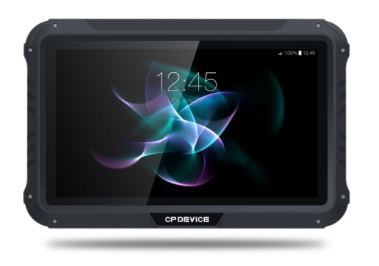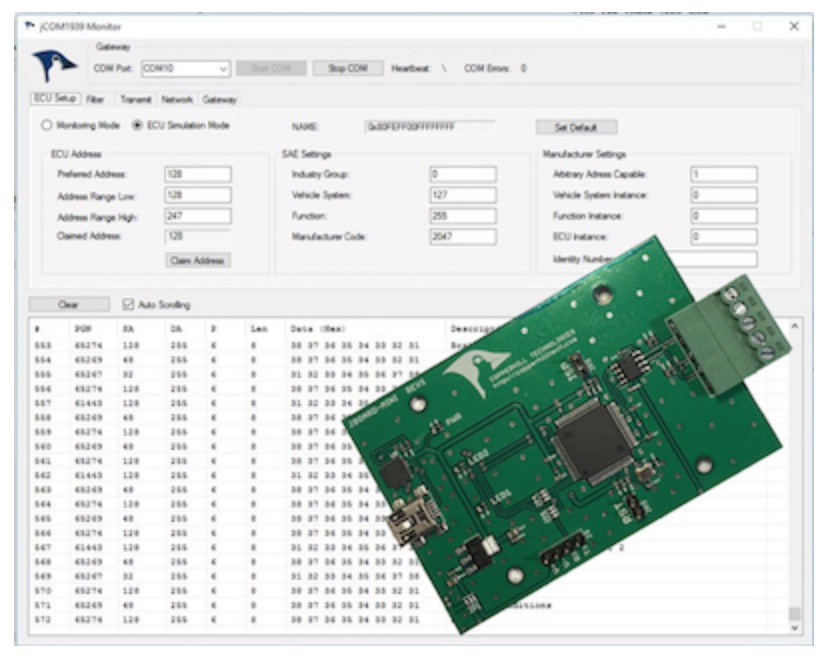Blog
Recent Posts
Android Based In-Vehicle Tablet With SAE J1939 And CANopen Support
Posted by on
CP Device (China) introduced their series of displays suitable for road and off-road vehicles, which also support the ISO 15765-2 CAN transport protocol.
The Chinese manufacturer offers different screen sizes, 7-inch or 10.1-inch. The devices utilize 1.5-MHz quad-core processors. The Apollo 10 display features 2-GiB RAM and 16-GiB ROM extendable to 32 GiB. There are several communication options available, such as Wifi, Ethernet, EIA-232, and EIA-485. Also, up to four cameras can be connected to the display.
The CAN Bus interface supports bit-rates of 250 kbit/s and 500 kbit/s. The supplier provides protocol stacks for CANopen and SAE J1939. Also, the ISO 15765-2 CAN transport protocol is supported, which is used primarily in passenger cars. The display uses an Android operating system.
SAE J1939 ECU Simulator Board With USB Port
The jCOM.J1939.USB gateway board is a high-performance, low-latency vehicle network adapter for SAE J1939 applications. It allows any host device with a USB COM port to monitor SAE J1939 data traffic and communicate with the SAE J1939 vehicle network.
The board supports the full SAE J1939 protocol according to J1939/81 Network Management (Address Claiming) and J1939/21 Transport Protocol (TP). It is also supported by an extensive programming interface for Windows and Linux/Ubuntu applications, including full C/C++/C# source code for short time-to-market developments.
The strength of the board lies in the fact that the entire SAE J1939 protocol, including all timing requirements, is stored on-chip, thus taking the burden off the main system. The board uses a USB COM port to communicate with the main system, i.e. all data transfer is handled through a standard COM port access.
The communication protocol between the board and the main system is well documented and thus allows a porting to any computer system with a USB connection. Working source code libraries exist for Windows (C# under Visual Studio 2012/2013), Linux and its derivatives (C++ using Code::Blocks), and Raspberry Pi (C using the standard gcc compiler).
 Loading... Please wait...
Loading... Please wait...


